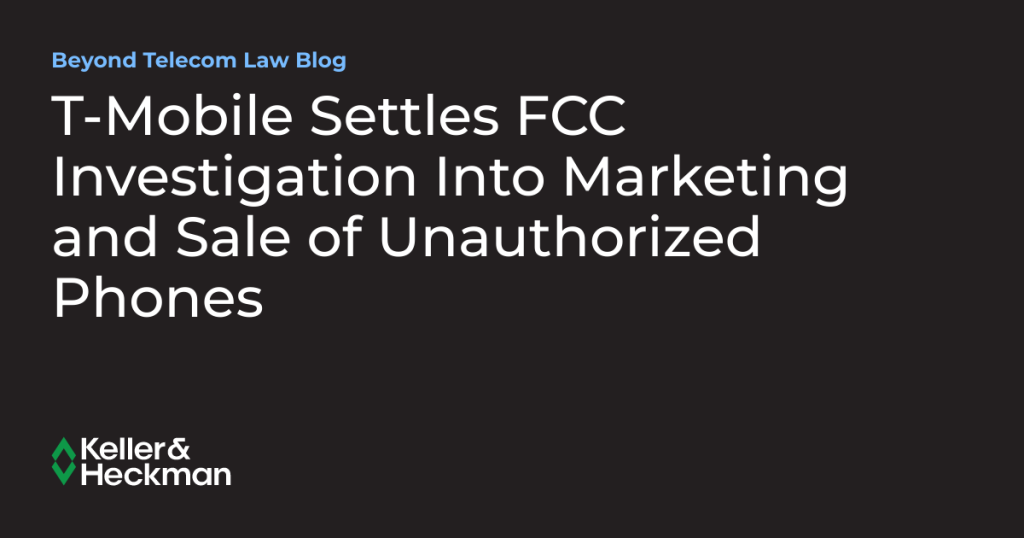T-Mobile Settles FCC Non-Compliance for 5G Smartphone: Key Lessons for the Telecom Industry

The telecommunications industry witnessed another regulatory shake-up as T-Mobile US, Inc. settled with the Federal Communications Commission (FCC) over its premature sales of the REVVL 7 PRO 5G smartphone. The investigation revolved around T-Mobile’s violation of section 302 of the Communications Act of 1934, along with FCC Rules parts 2 and 15, regarding equipment import, marketing, and sales without proper authorization. The settlement highlights critical compliance lessons for telecom professionals navigating increasingly stringent regulatory environments.
The Regulatory Breach and Settlement Details

Pexels
On May 14, 2024, T-Mobile announced the availability of the REVVL 7 PRO 5G, commencing sales just nine days later. However, the FCC disclosed that T-Mobile’s smartphone lacked the required equipment authorization until May 29, 2024. During this compliance gap, the company managed to sell thousands of devices, prompting the FCC to open an inquiry in October 2024. Following months of investigation, T-Mobile entered into a Consent Decree to resolve the case. This settlement included a $7,000 payment to the U.S. Treasury and the implementation of a Compliance Plan.
The Compliance Plan aims to prevent any future violations and introduces stringent operational requirements. Steps include appointing a corporate Compliance Officer empowered to halt non-compliant activities, establishing a comprehensive Compliance Manual, and implementing mandatory training programs for employees. Additionally, T-Mobile has agreed to enforce new verification protocols to ensure all products meet FCC regulations before entering the market.
Understanding FCC Equipment Authorization Rules

Pexels
The FCC’s equipment authorization requirements serve as a protective barrier against harmful radio frequency (RF) interference. Its regulations encompass both intentional RF emitters, like smartphones and Wi-Fi devices, and unintentional emitters, such as digital cameras and electronic toys. Section 2.803(b)(1) of the FCC Rules prohibits the marketing of RF devices without approval, while Sections 2.1203 and 2.1204 regulate the importation of such devices unless specific authorization conditions are met. T-Mobile’s reliance on its manufacturers to ensure compliance fell short of the FCC’s expectations, underlining the importance of diligent documentation and internal oversight.
This case underscores that contractual assurances from manufacturers may not always suffice to meet FCC standards. Companies must take a proactive role in verifying compliance to avoid costly disputes and reputational risks.
Implications for the Telecom Industry

Pexels
This enforcement action is a vital reminder of the FCC’s growing emphasis on holding companies accountable for regulatory violations. The agency’s move towards framing payments in Consent Decrees as “civil penalties” indicates a stricter stance, ensuring violators face financial consequences. While T-Mobile’s relatively minor infraction during a short non-compliance period resulted in a voluntary $7,000 payment, the case signals that even minor breaches will not be overlooked.
For telecom operators and manufacturers, this settlement emphasizes the necessity of robust compliance frameworks. Companies must actively monitor regulatory updates, integrate thorough compliance checkpoints into supply chains, and ensure all internal teams are well-trained in FCC guidelines to mitigate potential risks.
Looking Ahead

Pexels
The T-Mobile case serves as a cautionary tale for telecom companies operating in an era of intensifying oversight. It highlights the importance of regulatory compliance not only as a legal requirement but as a strategic component of business operations. By adhering strictly to FCC standards and fostering a culture of accountability, businesses within the telecom industry can safeguard their reputation, avoid penalties, and build trust with consumers and regulators alike.
As the FCC continues to refine its enforcement approach, operators must adopt more stringent internal processes to navigate the intersection of innovation and policy requirements effectively. Taking proactive measures today may well save companies from regulatory pitfalls tomorrow.




